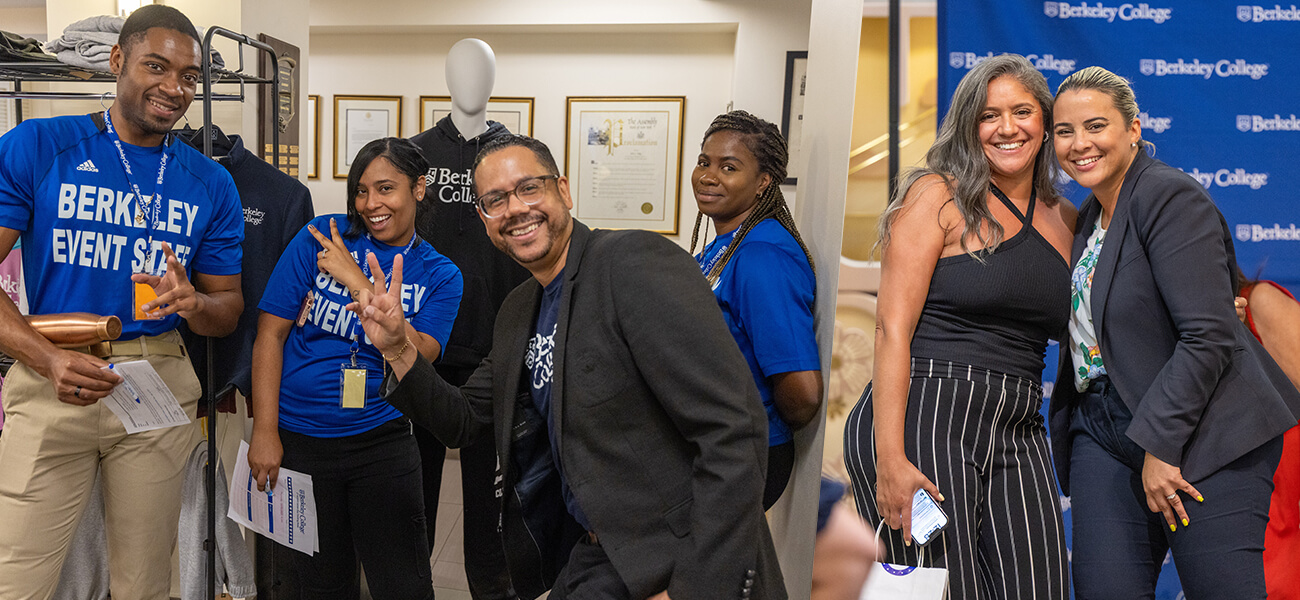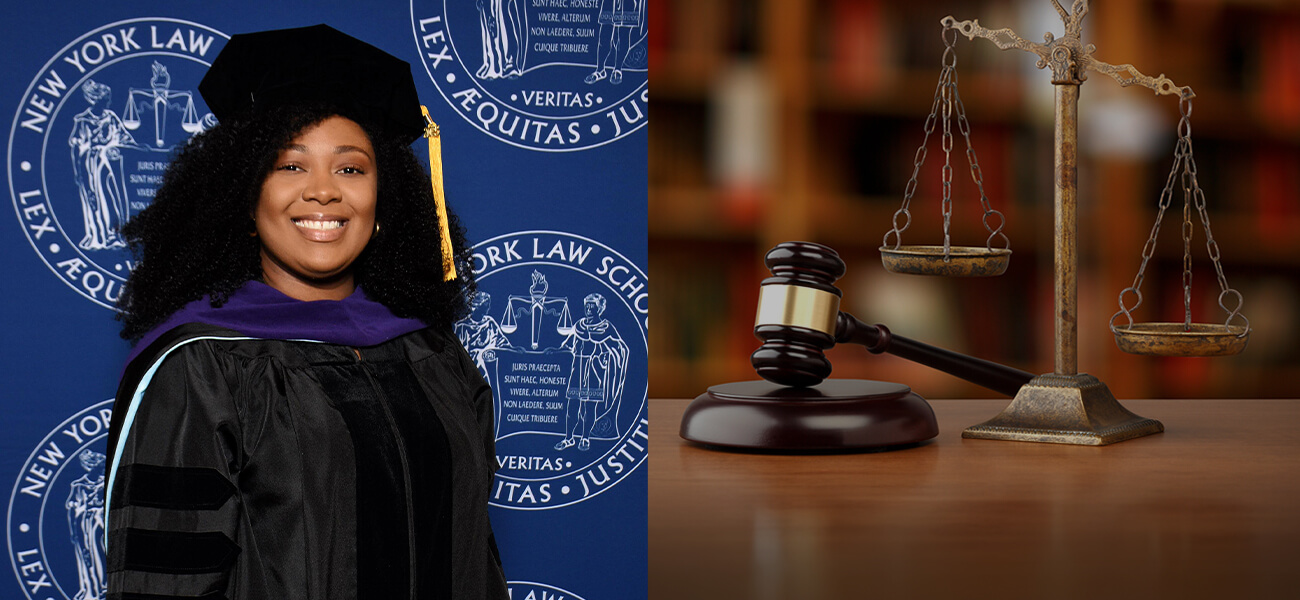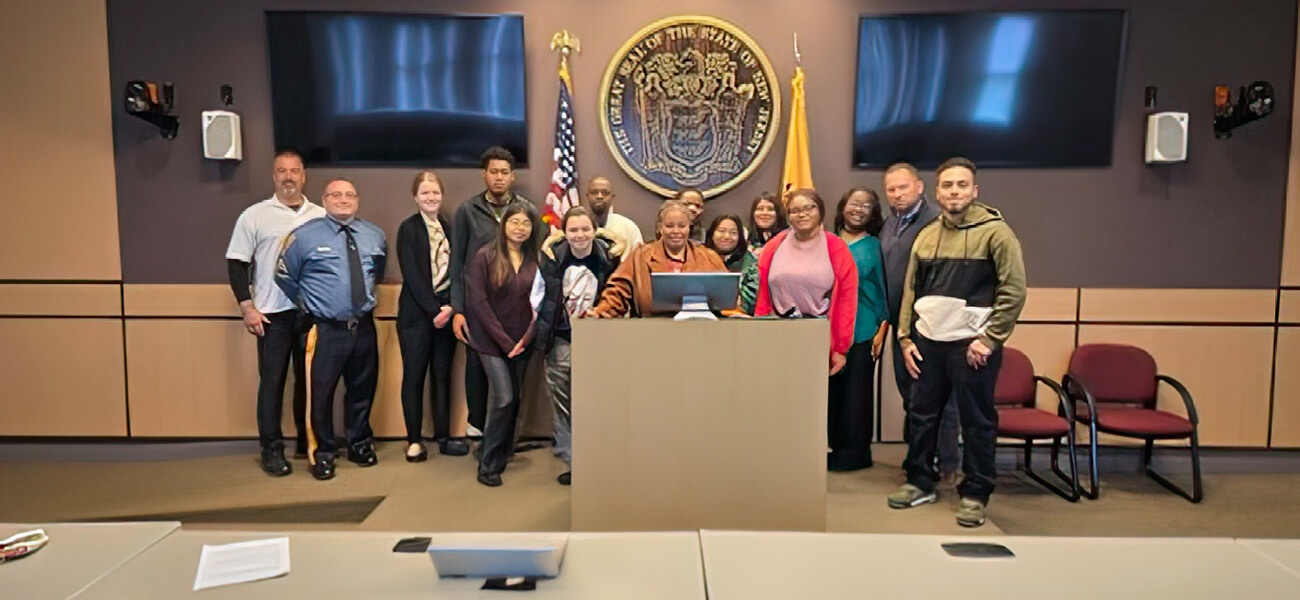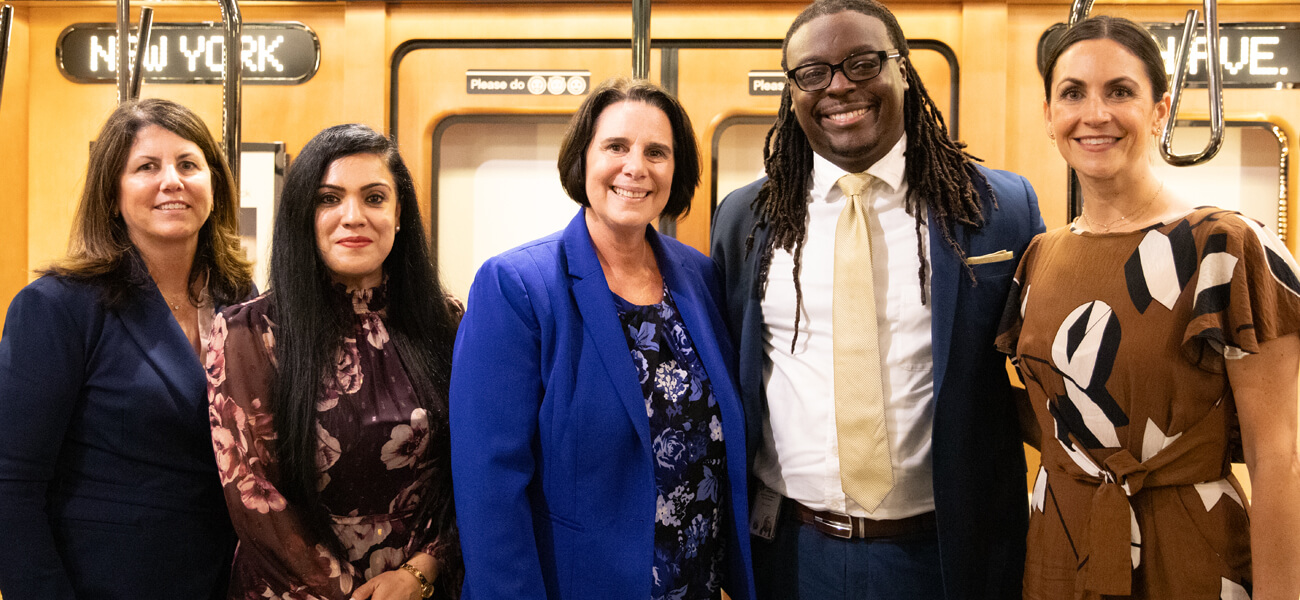At Berkeley College, experiential learning prepares Justice Studies and Legal Studies students
Touring NYPD facilities. Up-close learning with a state police Intelligence Unit. Hands-on training in dealing with opioid overdoses. Meeting with a judge to explore careers within the judicial system. These are just a few of the ways Berkeley College incorporates experiential learning into its Justice Studies - Criminal Justice, National Security, and Legal Studies degree programs.
 “The Berkeley College program curricula are very strong and prepare students for careers. As a result, academic programs are developed and regularly updated with input from advisory boards made up of industry experts,” Patricia Greer, Provost, emphasized. “We do this to ensure that our students are learning the skills that today’s top-tier employers seek.”
“The Berkeley College program curricula are very strong and prepare students for careers. As a result, academic programs are developed and regularly updated with input from advisory boards made up of industry experts,” Patricia Greer, Provost, emphasized. “We do this to ensure that our students are learning the skills that today’s top-tier employers seek.”
But at Berkeley College, that’s only part of the educational journey.
Empowering each student to achieve lifelong success
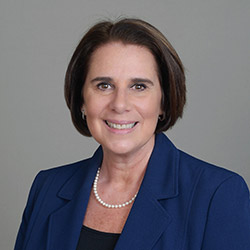 “Our focus on experiential learning aligns with Berkeley's mission of empowering each student to achieve lifelong success by equipping them with practical skills, networking opportunities, and real-world, hands-on experiences,” said Dr. Diane Recinos, President of Berkeley College. “Berkeley collaborates with industry-leading professionals, executives, and thought leaders, ensuring students engage with outstanding presenters who provide valuable insights into current industry trends and expectations.”
“Our focus on experiential learning aligns with Berkeley's mission of empowering each student to achieve lifelong success by equipping them with practical skills, networking opportunities, and real-world, hands-on experiences,” said Dr. Diane Recinos, President of Berkeley College. “Berkeley collaborates with industry-leading professionals, executives, and thought leaders, ensuring students engage with outstanding presenters who provide valuable insights into current industry trends and expectations.”
Close-up with a canine (and her human partner) from the ATF
Special Agent Michael Alongi from the ATF (Bureau of Alcohol, Tobacco and Firearms) and his partner Sunny, a black Labrador Retriever trained as an Explosives Detection/Search Enhanced Evidence K-9 (S.E.E.K.), recently visited the Woodbridge campus. Agent Alongi highlighted the importance of K-9 teams in everyday crime scenes, particularly in locating discarded firearms, explosive devices, or shell casings, which are crucial for prosecutions. Students from Professor Eric Lawson's Justice Studies class and a business class witnessed Sunny's ability in action, as her handler provided a demonstration to locate explosives when ordered to search the premises. Assigned to the ATF's Newark Field Division, Sunny can detect over 19,000 distinct odors related to explosives, firearms, and ammunition and work off-leash up to 150 yards away from her handler.
Students benefit from the experience
“To be able to experience the events such as the ATF visit, makes me so grateful in my choice of Berkeley College to pursue my education,” said Madison Flanagan Desmond, a current first-year student working toward an Associate’s degree in Justice Studies - Criminal Justice. “I thank my professors for their time in arranging the special guest and providing us with networking opportunities. We are learning so much and really get to discover which path in the criminal justice field we like the most and want to pursue!” Madison expects to graduate in 2026 and already plans to continue into the Bachelor’s degree program.
On the job with the NYPD
 “Experiences like tours help place students in the shoes of the profession they aspire to,” explained Professor Charlane Brown, who recently led a group of Justice Studies - Criminal Justice students on an up-close tour with the New York City Police Department. “Students were allowed to observe and interact within these real spaces and police professionals thereby bringing the curriculum to life. Students were able to meet and talk with officers who brought words of encouragement to inspire them along their journey.”
“Experiences like tours help place students in the shoes of the profession they aspire to,” explained Professor Charlane Brown, who recently led a group of Justice Studies - Criminal Justice students on an up-close tour with the New York City Police Department. “Students were allowed to observe and interact within these real spaces and police professionals thereby bringing the curriculum to life. Students were able to meet and talk with officers who brought words of encouragement to inspire them along their journey.”
At the heart of New Jersey’s center for operations and intelligence
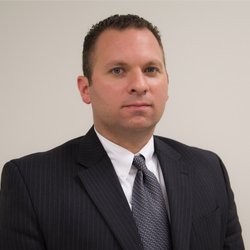 Students from Professor Gary Krulish, who is also Chair of the Justice Studies program, and Professor Angelo Zecca's classes, along with students from the Justice League Club, recently learned how the New Jersey State Police shares intelligence with its public and private partners during a visit to the New Jersey Regional Operations & Intelligence Center (NJ ROIC) in Ewing, NJ.
Students from Professor Gary Krulish, who is also Chair of the Justice Studies program, and Professor Angelo Zecca's classes, along with students from the Justice League Club, recently learned how the New Jersey State Police shares intelligence with its public and private partners during a visit to the New Jersey Regional Operations & Intelligence Center (NJ ROIC) in Ewing, NJ.
The NJ ROIC is the state’s fusion center, a joint interagency enterprise comprised of personnel from several law enforcement and public safety agencies, including the Federal Bureau of Investigation and the U.S. Department of Homeland Security. The NJ ROIC is also the home of New Jersey’s Office of Emergency Management.
Fusion centers are vital to ensuring public safety and preparedness-serving the function of coordinating activities/efforts to share information between the private and public sectors. “Berkeley College and the School of Professional Studies greatly appreciate the New Jersey State Police for providing Justice Studies and National Security students with this experiential learning opportunity outside the classroom,” said Professor Krulish. “These experiences are invaluable in preparing our students for career success.
An inside perspective on the prison system
Students from the Berkeley College Newark campus visited East Jersey State Prison for an in-depth experiential learning event with incarcerated persons participating in the Lifers Program. The visit provided students with a firsthand look at the realities of the criminal justice system while fostering meaningful discussions on rehabilitation, personal accountability, and life behind bars.
The Lifers Program, comprised of incarcerated individuals serving long-term sentences, aims to educate young people about the consequences of crime while promoting self-reflection and mentorship. During the visit, students engaged in candid conversations with those in the Lifers Program who shared their personal experiences, lessons learned, and perspectives on the justice system.
Transformative learning outside the classroom
“This visit provided our students with a transformative learning opportunity outside the classroom," said Professor Krulish. "By hearing directly from those impacted by the system, students gain a deeper understanding of criminal justice beyond textbooks and lectures.”
In addition to aligning with Berkeley College’s commitment to experiential learning, the visit helps bridge academic knowledge with real-world insights. It also encourages students to think critically about rehabilitation, sentencing policies, and the role of programs like the Lifers Program in shaping reform efforts.
Hands-on training to battle drug overdoses
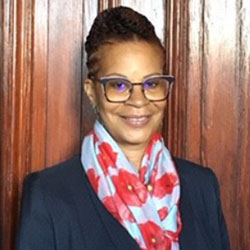 Justice Studies - Criminal Justice students in Dr. Judith Corbett Carter’s NYC Drug and Drug Policy course recently participated in an experiential learning session led by Mario Vergara, Housing Works Overdose Prevention Counselor/Harm Reduction/Positive Health Project. After discussing the organization's history and harm reduction strategies, the presenter provided training on administering Narcan (naloxone) to reverse opioid overdoses. Students received Narcan kits, reinforcing their understanding of harm reduction.
Justice Studies - Criminal Justice students in Dr. Judith Corbett Carter’s NYC Drug and Drug Policy course recently participated in an experiential learning session led by Mario Vergara, Housing Works Overdose Prevention Counselor/Harm Reduction/Positive Health Project. After discussing the organization's history and harm reduction strategies, the presenter provided training on administering Narcan (naloxone) to reverse opioid overdoses. Students received Narcan kits, reinforcing their understanding of harm reduction.
Practical, powerful career preparation
At Berkeley College, theory and practice combine for an education that truly prepares students for the real world. In addition to internships, which are offered in many programs, the hands-on knowledge gained through experiential learning complements the rigorous classroom instruction for a well-rounded foundation to launch a career.
Dr. Recinos concluded, “Berkeley College stands out by including hands-on learning through its curriculum, giving students real-world experience through internships, projects, and fieldwork to help them succeed in the job market.”
The views and/or opinions in this article are those of the individuals interviewed. The academic achievements and/or employment outcomes described in this article are specific to each individual and are not a guarantee of similar results for past or current students. For up-to-date and detailed information, please visit BerkeleyCollege.edu and view our catalogs at BerkeleyCollege.edu/publications.

